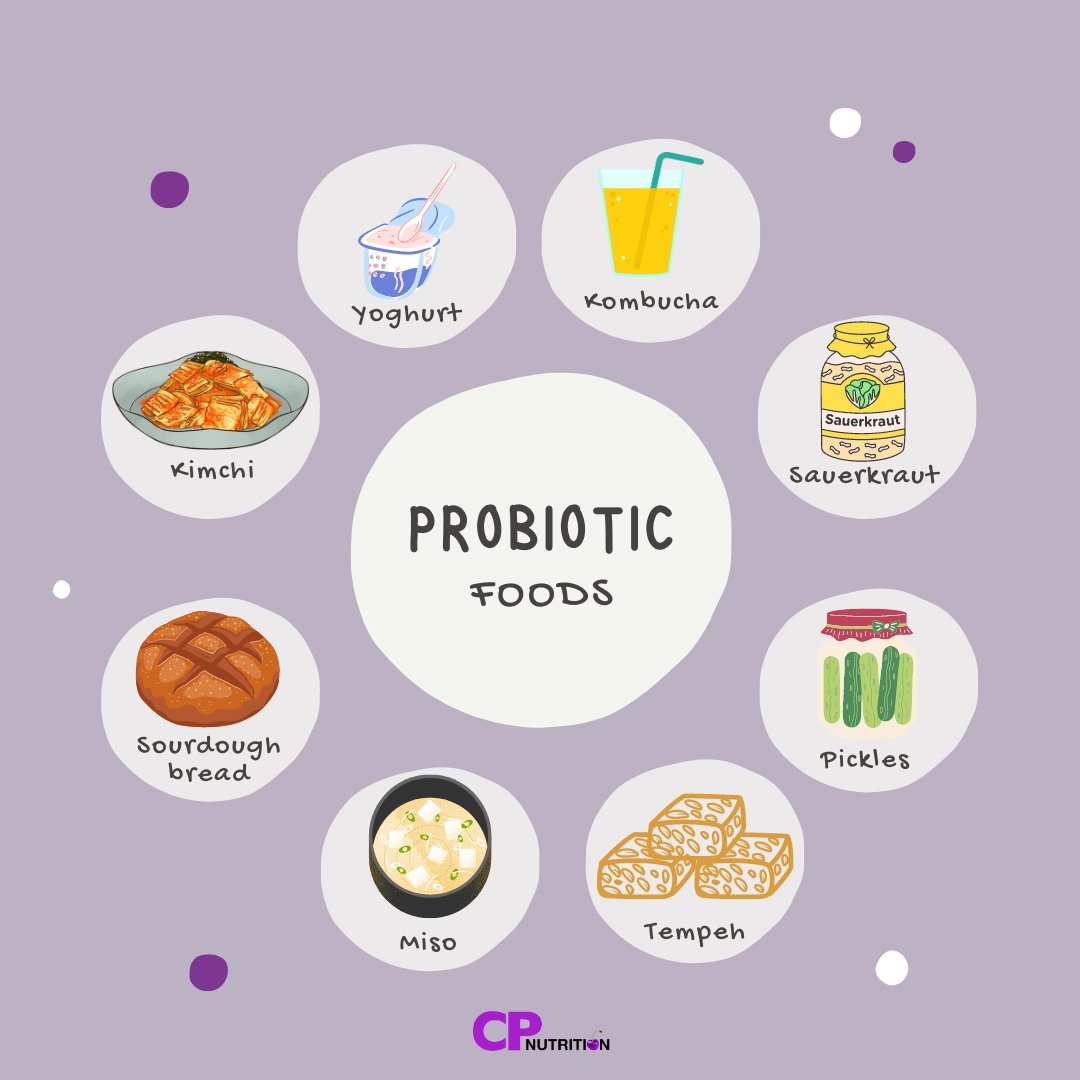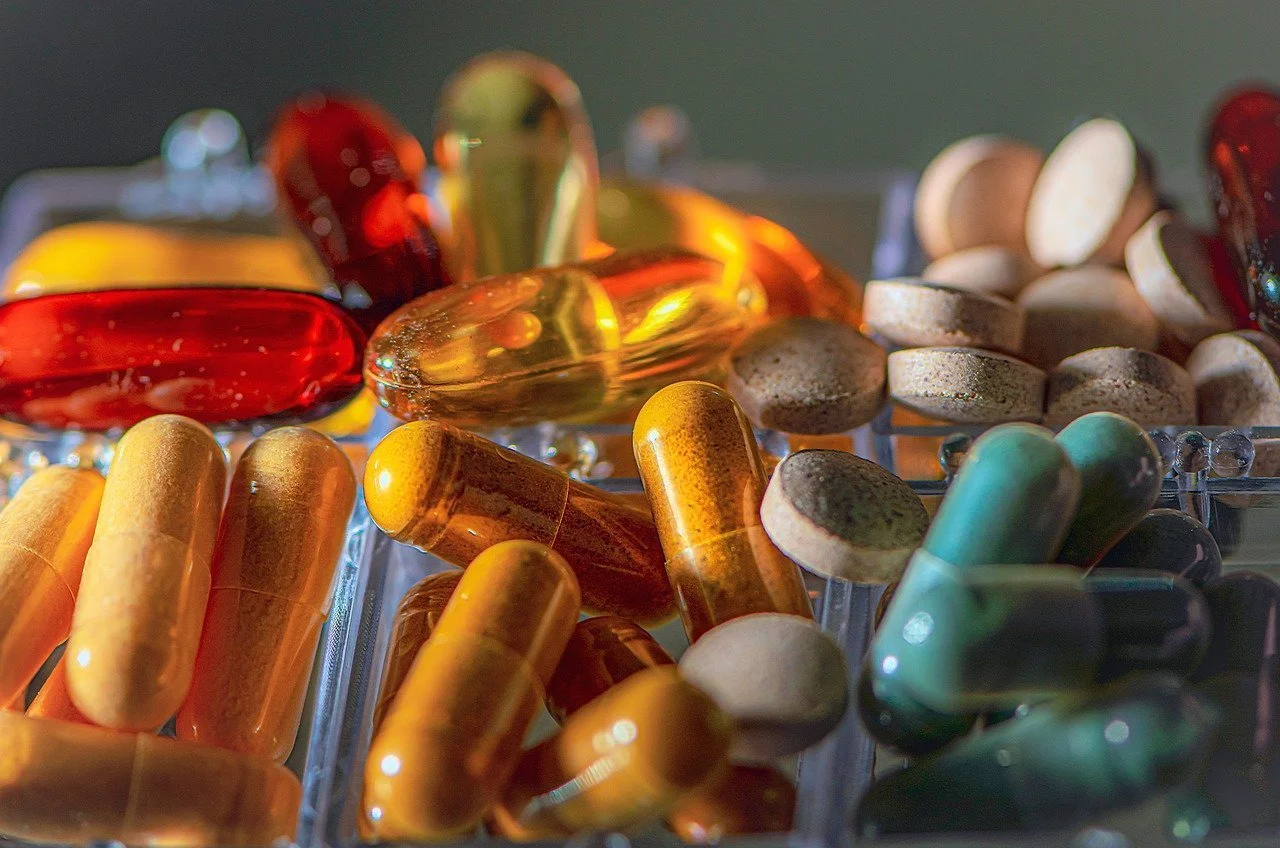Navigating Gut Health: What is the Best Probiotic for PCOS?
With such a large amount of information about gut health available, it may feel overwhelming to find out how you can look after your gut health, especially with PCOS. You may have heard of prebiotics and probiotics, which are both commonly brought up in the gut health space.
If you would like to understand the relationship between PCOS and gut microbiome and ways to improve your gut health such as picking out the best probiotic for PCOS, keep on reading!
PCOS and Gut Health
A large community of different microbes can be found in our gut, making up what we know as the gut microbiome. The gut microbiome plays a crucial role in human health with the microbes providing protection against infections and regulation of the immune system. Currently, we don’t know the exact cause of PCOS however, it is suggested that an imbalance of the gut microbiota may contribute to the development of PCOS.
The relationship between the gut microbiome and PCOS is complex; however, several studies have shown that the composition of the gut microbiome is altered in people with PCOS (known as dysbiosis). Research has also suggested that there is less diversity in the types of microbes living in the guts of people with PCOS, with fewer different types of good bacteria and higher numbers of bad bacteria (1).
In 2012, it was suggested that an increase in the amounts of bad bacteria in the gut may activate the immune system and cause inflammation leading to the symptoms associated with PCOS such as ovarian dysfunction and insulin resistance (2). Therefore, looking after your gut is an important aspect of PCOS treatment.
What are Prebiotics?
Prebiotics are plant fibres and carbohydrates that can’t be broken down by our digestive system. The bacteria in our gut can use these prebiotics as an energy source for growth and reproduction, allowing the growth of ‘good’ bacteria in the gut and improving the function of your digestive system.
The fermentation of these carbohydrates also produces compounds called short chain fatty acids that can leave the gut and have beneficial effects on various systems such the immune system, nervous system as well as the gastrointestinal system itself. This can help improve metabolism, reduce inflammation and manage blood lipid levels (3).
What are Probiotics?
Probiotics are live microorganisms including bacteria and yeasts that naturally live in your body and are beneficial for your gut.
Probiotics can be consumed in the diet as food or supplements.
Including probiotics in the diet helps maintain the balance of the microbiome by increasing the number of good bacteria. Taking probiotics may also be beneficial with illness or treatment that may disrupt the natural balance of the microbiome.
Are Probiotics Good for PCOS?
The altered composition of the gut microbiome that may happen with PCOS may lead to increased inflammation and the development of insulin resistance (1). Increasing probiotic intake through the diet as well as supplements may help manage symptoms associated with PCOS by restoring the natural balance of the microbiome. Evidence suggests that taking probiotics for at least 12 weeks could improve metabolism, reduce androgen levels and decrease inflammation in women with PCOS (4).
Prebiotics and Probiotics in the Diet
Although probiotics are more commonly taken as supplements, you can find sources of both prebiotics and probiotics naturally occurring in foods. Here are some examples of sources that you could include in your diet.
Probiotics are naturally found in fermented foods however; some food items also have probiotics added to them. Some examples of probiotics include:
Yoghurt
Kombucha
Sauerkraut
Pickles
Miso
Tempeh
Sourdough bread
Kimchi
You can find prebiotics in lots of fruit, vegetables and wholegrains including:
Apples
Asparagus
Bananas
Barley
Beans
Berries
Garlic
Green leafy vegetables
Oats
Peas
Some fortified foods such as breads and cereals may have added prebiotic compounds. Look out for these names on the ingredient lists:
Galacto-oligosaccharides (GOS)
Fructo-oligosaccharides (FOS)
Oligofructose
Chicory fibre
Inulin
Probiotic Supplements
With so many types of supplements available on the market, it may be tricky to pick out the best probiotic for PCOS. It is also challenging as not all probiotics are regulated, therefore some labelling might be misleading.
Here are some things to consider when choosing a probiotic supplements:
Colony forming units (number of bacteria per dose): the higher the better
Number of bacterial strains: supplements containing multiple strains may be beneficial
Which strains or brands have been proven to be effective in PCOS: check out the next section below
Storage information and expiry: always store as recommended and use before expiry date
Which probiotic strain to choose?
Supplementing with probiotics has been associated with improved hormonal and inflammatory markers in women with PCOS with limited side effects. However, there is still not enough evidence to make a general probiotic recommendation for all people with PCOS, and more research is needed to determine which strains of bacteria would be most beneficial in PCOS treatment.
A recent review looked at the effect of different bacterial strains on PCOS and found various effects (5):
L. casei, L. acidophilus, L. rhamnosus, L. bulgaricus, B. breve, B. longum and Streptococcus thermophiles led to lower levels of insulin
Bifidobacterium and Lactobacillus lowered testosterone levels and reduced hirsutism
Lactobacillus acidophilus, Lactobacillus plantarum, Lactobacillus fermentum and Lactobacillus gasseri improved inflammation
As it can be seen, many different bacterial strains can be useful for those with PCOS, depending on your individual PCOS symptoms. If you are keen to try a probiotic to help manage your PCOS, then start by choosing a probiotic supplement containing some of the above strands which have been used in PCOS research. If you need some support or want more personalised advice, then you can consult with a PCOS dietitian or health professional to help pick the best option for you.
Looking after your gut health is not only crucial for overall health and wellbeing but can also help with managing your PCOS symptoms. Although probiotic supplements may help manage PCOS symptoms, it is important to also focus on increasing both prebiotic and probiotic foods within your diet in order to optimise the growth and function of friendly gut bacteria.
Navigating the world of supplements for PCOS can be challenging! For more information about other dietary supplements, check out this blog post on dietary supplements for PCOS. .
To keep up to date and learn more about PCOS and nutrition, make sure to follow @cp_nutritionrd on instagram!




